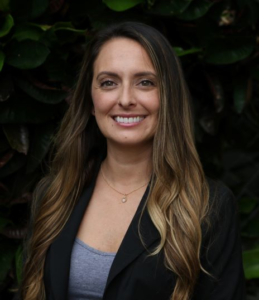INTEGRATING COMMERCIAL TOBACCO TREATMENT
IN BEHAVIORAL HEALTHWe hope you enjoy this series of webinars on integrating tobacco treatment in behavioral health. Expert speakers shared their experience, knowledge, and best practices on the topics of tobacco cessation, pharmacotherapy, intervention, youth and adult treatment including criminal justice populations, policy guidance, and integrating tobacco treatment into organizations. This series was hosted by Prevent Coalition and sponsored by Washington State Health Care Authority and Washington State Department of Health during the summer of 2021.
Despite enormous progress in reducing smoking, tobacco use is still the leading cause of preventable death in the United States and imposes a terrible toll on families, businesses and government. Tobacco kills more than 480,000 people annually – more than AIDS, alcohol, car accidents, illegal drugs, murders and suicides combined. Tobacco costs the U.S. approximately $170 billion in health care expenditures and more than $150 billion in lost productivity each year.
Anti-smoking efforts have not been directed toward people with behavioral health conditions as they have toward the general population. According to the National Behavioral Health Network and CDC, people with behavioral health conditions…
Are more likely to smoke.
The national cigarette smoking rate is approximately 14% overall among adults, however it is 23% for individuals with a behavioral health disorder.
Smoke more.
Nearly 25% of adults in the United States have a behavioral health condition and these adults consume almost 40% of all cigarettes smoked by adults in the USA.
Die prematurely.
Individuals with serious mental health disorders who smoke die almost fifteen years earlier than individuals without these disorders who do not smoke.
Die from smoking-related illness.
Individuals with behavioral health conditions account for nearly half of all tobacco-related deaths each year. The most common causes of death among people with behavioral health conditions are heart disease, cancer, and lung disease, all of which can be caused by smoking.
This webinar series is ideal for behavioral health professionals, tobacco use dependence treatment (TUDT) professionals, tobacco intervention specialists, or any public health professional who is interested in strengthening their knowledge and skills.
All webinars in this series are complete.
Live recordings can be accessed by browsing the tabs below and clicking the link in the description.
Thank you to everyone who registered, attended and contributed to our live webinars!
Webinar: The Need for Addressing Tobacco in Behavioral Health Settings
Date: June 15, 2021
Time: 1:00pm-2:30pm PST
Description:
This webinar reviews vital information to help clinical staff working in behavioral health settings address tobacco use in their patients. It reviews the reasons for doing this and barriers in behavioral health populations as well as the many consequences that people experience from tobacco use. Strategies for successful integration such as treating it as a co-occurring disorder is reviewed.
Speaker:
 Jill M. Williams, MD
Jill M. Williams, MD
Professor of Psychiatry
Director – Division of Addiction Psychiatry
Robert Wood Johnson Medical School
Jill M. Williams, MD, is Professor of Psychiatry and Director of the Division of Addiction Psychiatry at the Rutgers University-Robert Wood Johnson Medical School in New Brunswick. She also holds faculty appointments at the Cancer Institute of New Jersey and the Rutgers Center for Alcohol Studies.
The focus of Dr. Williams work has been in addressing tobacco in individuals with mental illness or other addictions through treatment and systems interventions. Dr Williams has developed training curricula for behavioral health professionals and manualized treatments for treating tobacco in mental health settings. She is a Board Certified Addiction Psychiatry and member of the APA Council on Addictions. Dr. Williams has received research funding from sources including the National Institutes on Drug Abuse (NIDA), National Institute of Mental Health (NIMH), and American Legacy Foundation. Her publications have appeared in numerous journals including Nicotine and Tobacco Research, the Journal of the American Medical Association, and the Journal of Substance Abuse Treatment and in 2015 she was the recipient of the Remarkable Achievement Award of the NJ Psychiatric Association.
This event is complete.
CLICK HERE TO WATCH THE RECORDING
Webinar: Changing the Treatment System Environment to Better Address Tobacco
Date: June 29, 2021
Time: 1:00pm-2:30pm PST
Description:
This webinar will review strategies for addressing tobacco use in clients with behavioral health comorbidity through systems changes to the treatment environment. These highly effective technique’s for changing policies and the environment of care can begin to change the culture around the acceptance of tobacco use in these settings and increase the demand for tobacco treatment services.
Speaker:
 Jill M. Williams, MD
Jill M. Williams, MD
Professor of Psychiatry
Director – Division of Addiction Psychiatry
Robert Wood Johnson Medical School
Jill M. Williams, MD, is Professor of Psychiatry and Director of the Division of Addiction Psychiatry at the Rutgers University-Robert Wood Johnson Medical School in New Brunswick. She also holds faculty appointments at the Cancer Institute of New Jersey and the Rutgers Center for Alcohol Studies.
The focus of Dr. Williams work has been in addressing tobacco in individuals with mental illness or other addictions through treatment and systems interventions. Dr Williams has developed training curricula for behavioral health professionals and manualized treatments for treating tobacco in mental health settings. She is a Board Certified Addiction Psychiatry and member of the APA Council on Addictions. Dr. Williams has received research funding from sources including the National Institutes on Drug Abuse (NIDA), National Institute of Mental Health (NIMH), and American Legacy Foundation. Her publications have appeared in numerous journals including Nicotine and Tobacco Research, the Journal of the American Medical Association, and the Journal of Substance Abuse Treatment and in 2015 she was the recipient of the Remarkable Achievement Award of the NJ Psychiatric Association.
This event is complete.
CLICK HERE TO WATCH THE RECORDING
Webinar: Quitline Services & Referrals
Date: July 15, 2021
Time: 1:00pm-2:30pm PST
Description:
The Washington State Quitline has been helping residents quit smoking and other types of commercial tobacco use for over 20 years. This webinar will share information about the Quitline service provider, the free counseling, medication, ancillary services available to Washingtonians, Quit Coach qualifications and training, program outcomes and satisfaction, and ways in which providers can refer clients to the Quitline for tobacco use dependence treatment and relapse prevention.
Speakers:
 Jessica Benson
Jessica Benson
Client Services Manager, Optum
Jessica Benson is a Client Services Manager with Optum. Optum partners with Washington State Department of Health to provide tobacco cessation counseling services to Washington residents. Jessica is the primary advocate and support for Washington, overseeing coordination of all aspects of the partnership including monitoring activity, operational changes, implementations, and reporting data. Jessica began her career at Optum as a Quit Coach and worked in a handful of health coaching roles providing behavior change for physical activity, weight management, stress management and overall wellness. She specialized in working with vulnerable populations including youth, expectant and postpartum mothers, veterans, and those who report behavioral health conditions and stress management challenges. She has a passion for healthcare and has over 10 years’ experience working with tobacco quitlines within Optum.
 Nick Fradkin, MPH, MPA
Nick Fradkin, MPH, MPA
Tobacco Treatment Consultant, Washington State Department of Health
Nick Fradkin is the Tobacco Treatment Consultant at the Washington State Department of Health. Nick oversees the tobacco use and dependence treatment strategies in the Washington State Commercial Tobacco Prevention and Control Strategic Plan and the state’s cooperative agreement with CDC’s Office on Smoking and Health. Nick also serves on the Advisory Council of the North American Quitline Consortium.
This event is complete.
CLICK HERE TO WATCH THE RECORDING
Webinar: Evidence-based Tobacco Treatment Pharmacotherapy for Use in Behavioral Health Settings
Date: July 29, 2021
Time: 10:00am-11:30am PST
Description:
The most effective evidence-based tobacco treatment interventions include the combination of FDA-approved pharmacotherapies, behavioral counseling, and social support/follow-up. This session will describe each of the 7 FDA-approved medications for tobacco treatment, their use, dosing, benefits, and potential side effects, focusing on behavioral health settings.
Speaker:

Michael Steinberg, MD, MPH, FACP
Professor and Chief –
Department of General Internal Medicine at
Rutgers Robert Wood Johnson Medical School
Medical Director –
Rutgers Center for Tobacco Studies/Tobacco Dependence Program
Dr. Michael Steinberg is Director of the Rutgers Tobacco Dependence Program (www.tobaccoprogram.org) which has treated over 8,000 tobacco users since 2001 and has trained over 2,000 health professionals from 48 states and 25 countries. He is a past-president of the Association for the Treatment of Tobacco Use and Dependence (ATTUD), and maintains active research in various areas of tobacco treatment interventions, publishing over 90 peer-reviewed manuscripts, and conducting studies funded by NCI, NIDA, RWJ Foundation, and the NJ Department of Health.
This event is complete.
CLICK HERE TO WATCH THE RECORDING
Webinar: Introduction to Motivational Interviewing for Tobacco Use Disorder
Date: August 12, 2021
Time: 1:00pm-2:30pm PST
Description:
Motivational Interviewing is a goal-oriented, yet collaborative and accepting therapeutic style intended to strengthen commitment to change. This 90-minute webinar will focus on using motivational interviewing when working with individuals who smoke to encourage quit attempts and to help those already motivated to quit. We will discuss the core skills of motivational interviewing and the importance of paying attention to the language of change.
Speaker:
 Marc L. Steinberg, Ph.D.
Marc L. Steinberg, Ph.D.
Clinical Psychologist
Professor of Psychiatry
Director, Tobacco Research & Intervention Lab
Director, Division of Addiction Psychiatry at Robert Wood Johnson Medical School
Dr. Marc Steinberg is a clinical psychologist and Director of the Tobacco Research & Intervention Lab. He is a Professor of Psychiatry and Associate Director, Division of Addiction Psychiatry at Rutgers Robert Wood Johnson Medical School. His research focuses on tobacco use and dependence, including tobacco dependence treatment development, tobacco use in smokers with psychiatric comorbidity, the relationship between smoking and task persistence/distress tolerance, and motivational interviewing as an approach to encourage smokers to make a quit attempt. As a member of the Motivational Interviewing Network of Trainers, he also trains clinicians in the use of motivational interviewing.
Dr. Steinberg is a Deputy Editor for the journal Nicotine & Tobacco Research and a Consulting Editor for Psychology of Addictive Behaviors.
This event is complete.
CLICK HERE TO WATCH THE RECORDING
Webinar: Treating Youth Tobacco Use
Date: August 24, 2021
Time: 10:00am-11:30am PST
Description:
Understanding tobacco use among youth is critical because previous research suggests that about 9 in 10 adult smokers first try conventional cigarettes during adolescence. Similarly, youth e-cigarette experimentation and use could also extend into adulthood due to the addictive qualities of nicotine. This webinar will focus on understanding commercial tobacco use among youth to inform tobacco prevention, intervention, and policy.
Speaker:
 Krysten Bold, PhD
Krysten Bold, PhD
Assistant Professor of Psychiatry
Clinical Psychologist
Research Faculty, Yale School of Medicine
Dr. Bold is a clinical psychologist and Assistant Professor in the Department of Psychiatry at Yale School of Medicine with expertise in substance use treatment and research. Her program of research focuses on understanding cigarette and e-cigarette use among youth and adults to inform tobacco prevention, intervention, and policy. Her research on youth tobacco use has been widely cited, including in the 2016 US Surgeon General’s report on e-cigarette use among youth and young adults. She also serves on the Treatment Network Advisory Committee for the Society for Research on Nicotine and Tobacco.
This event is complete.
CLICK HERE TO WATCH THE RECORDING
Webinar: Treating Tobacco Dependence in Corrections Settings
Date: September 9, 2021
Time: 1:00pm-2:30pm PST
Description:
Tobacco is the psychoactive substance most widely used by prisoners. Whereas a remarkable decline in smoking prevalence rates has been observed in the general population where tobacco control policies are being implemented, no comparable changes have occurred in prisons over the last decades. This creates a need for effective interventions to reduce health risks to both detainees and staff. This webinar will discuss health education and tobacco cessation in the criminal justice system.
Speaker:
Pamela Valera PhD, MSW, ACSW, NCTTP
Assistant Professor, School of Public Health
Affiliated Faculty, School of Social Work at Rutgers University
Dr. Valera is an Assistant Professor in the School of Public Health and also an Affiliated Faculty in the School of Social Work at Rutgers University. Dr. Valera earned her Ph.D. in Social Work from the University of South Carolina, College of Social Work. She completed a three-year postdoctoral research fellowship in human immunodeficiency virus prevention and human sexuality from Columbia University and the New York State Psychiatric Institute, and a one-year clinical fellowship in cancer health disparities from the Albert Einstein College of Medicine. She has sustained several years of NIH-funded research in cancer health disparities among men with criminal justice histories at the Albert Einstein College of Medicine, Department of Epidemiology and Population Health, and Columbia University Mailman School of Public Health. Her research focuses on developing cancer health education programs for studying cancer prevention and smoking cessation among men involved in the criminal justice system.
In addition, Dr. Valera is a certified tobacco treatment specialist and the co-chair/co-founder of the Bronx Reentry Working Group, a coalition of returning citizens, friends, and family members supporting each other through community reintegration.
This event is complete.

